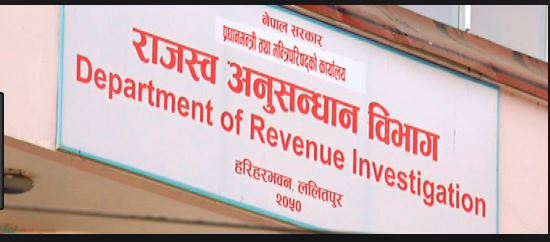KATHMANDU: The Department of Revenue Investigation (DRI), tasked with controlling revenue leakage, has filed 56 cases in district and high courts within the first six months of the current fiscal year. These cases collectively demand NPR 2.88 billion in penalties and recoveries. The semi-annual progress report released by the department revealed that over NPR 25 million has already been collected as fines from various companies and firms during this period. The department penalized 736 companies for failing to comply with revenue regulations.
Cases concerning revenue leakage are filed in high courts, while those related to foreign currency mismanagement are submitted to district courts, as per legal provisions. DRI spokesperson Navaraj Adhikari clarified that the report excludes incidents currently under investigation. In the first half of the fiscal year, the department demanded NPR 339.37 million in bail from businesses accused of revenue leakage. While some cases are awaiting court decisions, others are in the process of being settled by the respective firms.
The DRI has filed cases worth NPR 422.87 million under revenue leakage, including an equal amount in penalties, totaling a demand of NPR 845.74 million in high courts. Of these, 20 cases specifically target revenue fraud. In cases of foreign currency mismanagement, the department has filed 36 lawsuits across various districts, demanding NPR 2.36 billion. These cases name 58 individuals as defendants. Mismanagement cases often involve penalties of up to 300% of the misused amount, as per legal provisions. The reported loss due to foreign currency mismanagement is NPR 678.71 million, with fines tripling this amount due to the 300% penalty structure.
The department primarily investigates cases forwarded by law enforcement, uncovered through raids, or flagged via VAT fraud and vehicle tracking systems. Complaints received from whistleblowers also contribute to the caseload. Spokesperson Adhikari noted that firms failing to use the Vehicle Consignment Tracking System (VCTS) while transporting goods are fined accordingly. This penalty generated NPR 25.6 million in revenue during the reporting period. First-time offenders face fines of NPR 50,000, while repeat violations result in fines of NPR 100,000. Currently, 276,000 taxpayers nationwide are utilizing the VCTS. However, only 47% of complaints received by the department were resolved during the semi-annual period.
Under a new provision effective from December 29, the DRI’s Director General can now exempt cases involving revenue losses and penalties up to NPR 30 million from prosecution, compared to the previous limit of NPR 5 million. This change, introduced via an ordinance, aims to improve Nepal’s economic and business environment. The adjustment follows the transfer of the DRI to the Office of the Prime Minister and Council of Ministers from the Ministry of Finance in 2018. Since then, cases involving over NPR 5 million must be directly filed in high courts, bypassing district courts to expedite proceedings.
Despite these efforts, the department often faces challenges in securing favorable outcomes in court. Even in successful cases, the amount recovered is frequently far less than the claims made. Revenue officials argue that the provision allowing businesses to settle claims up to NPR 30 million without prosecution aims to address these inefficiencies. Additionally, the shift to filing cases directly in high courts aims to reduce delays caused by multi-tiered judicial processes. With continued reforms and stricter enforcement, the department aims to strengthen its efforts to curb revenue leakage and ensure compliance among businesses operating in Nepal.

